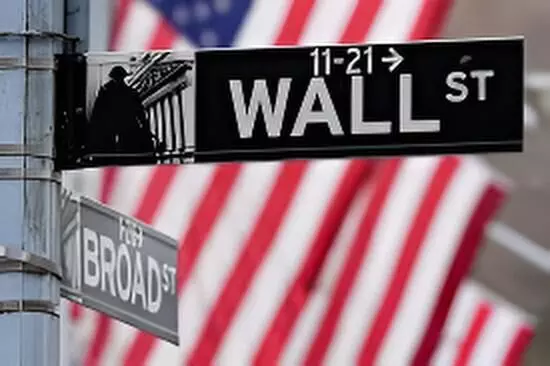Stock Futures Fall as Tesla, IBM Drop on Earnings; Oil Prices Surge After New Sanctions on Russia
U.S. stock futures dipped Thursday as Tesla and IBM earnings disappointed and oil prices jumped 5% following U.S. sanctions on Russia. Market volatility rises amid trade and earnings concerns.
Stock Futures Slide as Tesla, IBM Fall; Oil Surges 5% After U.S. Sanctions Russia

On Thursday, U. S. stock futures experienced another decline, as the investors reacted to the corporates' earnings being mixed and to the geopolitical tensions that rose after the imposition of new sanctions on Russia by the U. S. government.
Market Overview
Futures corresponding to the Dow Jones Industrial Average went down by 95 points (0.2%), while the ones for S&P 500 and Nasdaq 100 fell by 0.1% and 0.3%, respectively. This has been a continuation of the bearish trend that was confirmed by Wednesday’s market, during which the S&P 500 lost 0.5%, the Dow around 334 points (0.7%) and the Nasdaq Composite 0.9%.
Investor mood has been cautious ever since Treasury Secretary Scott Bessent mentioned that the White House is mulling over the idea of limiting exports to China of items that require U. S. software — which is a move that could inflame trade tensions just before President Donald Trump’s meeting with Chinese President Xi Jinping.
Tesla, IBM Dragged Markets Down
The share price of Tesla, the electric vehicle manufacturer, dropped 3% in premarket hours after its third-quarter sales were not clear-cut. On the other hand, IBM stock went down by 8% even though it was able to beat the earnings anticipations of Wall Street, as its software revenue was just at the expectations.
The losses of the two tech companies which are already under pressure from the market, with analysts predicting the bear market would continue if the present earnings seasons do not come out in favor of the bulls.
Sanctions on Russia Push Up Oil Prices
Oil prices jumped close to 5% on Thursday following the announcement of new sanctions by the Trump administration against Russia’s two largest crude producers — Rosneft and Lukoil, due to Moscow not committing to a peace deal in Ukraine.
Brent crude was priced at $65.65 per barrel at the last trading, with a gain of $3.06 or 4.9%, whereas U. S. West Texas Intermediate (WTI) crude increased by $3.10 to $61.60. These gains followed a 2% rally in the previous trading session.
Bessent requested an “immediate ceasefire,” claiming that the sanctions were enacted to push an end to the conflict.
Earnings Season in Focus
FactSet reports that over 75% of S&P 500 companies that have disclosed their earnings thus far have surpassed profit expectations. Nevertheless, the volatility is still high as the market participants evaluate whether these results can keep the momentum of the market going.
Chris Grisanti, the chief market strategist at MAI Capital Management, suggested that investors should not have too much exposure in the high-growth tech sector and that the current valuations are similar to those during the dot-com burst of the late 1990s.
“Valuations are the second-highest they have been in a century,” Grisanti stated on CNBC. “The market appears to be strong, but history is repeating itself very closely with the late 1990s.”
Pre-Market Movers
Stocks of quantum computing companies rose after it surfaced that the Trump administration was negotiating to take an equity position in some companies. Rigetti Computing, IonQ, and Quantum Computing Inc. saw their stock prices increasing from 7% to 9%.
Las Vegas Sands posted a 6% increase in its stock price after its quarterly profit exceeded expectations, due to the market growth in Macao and Singapore being the major contributing factors.
Hilton Grand Vacations stock gained 5% as a result of the strong performance of the sector that increased the investor confidence.
American Airlines saw its stock price hike by 5% following the announcement of the smaller-than-expected quarterly loss. The airline has guided for Q4 earnings of between 45 to 75 cents per share, which is above the expectations of Wall Street.
Outlook
Investors will likely remain anxious as more big corporates will be releasing their financial results in the ongoing week. Rising oil prices, increasing trade disputes, and lofty market valuations are still the main threats to the temporary stability of the stock market.

